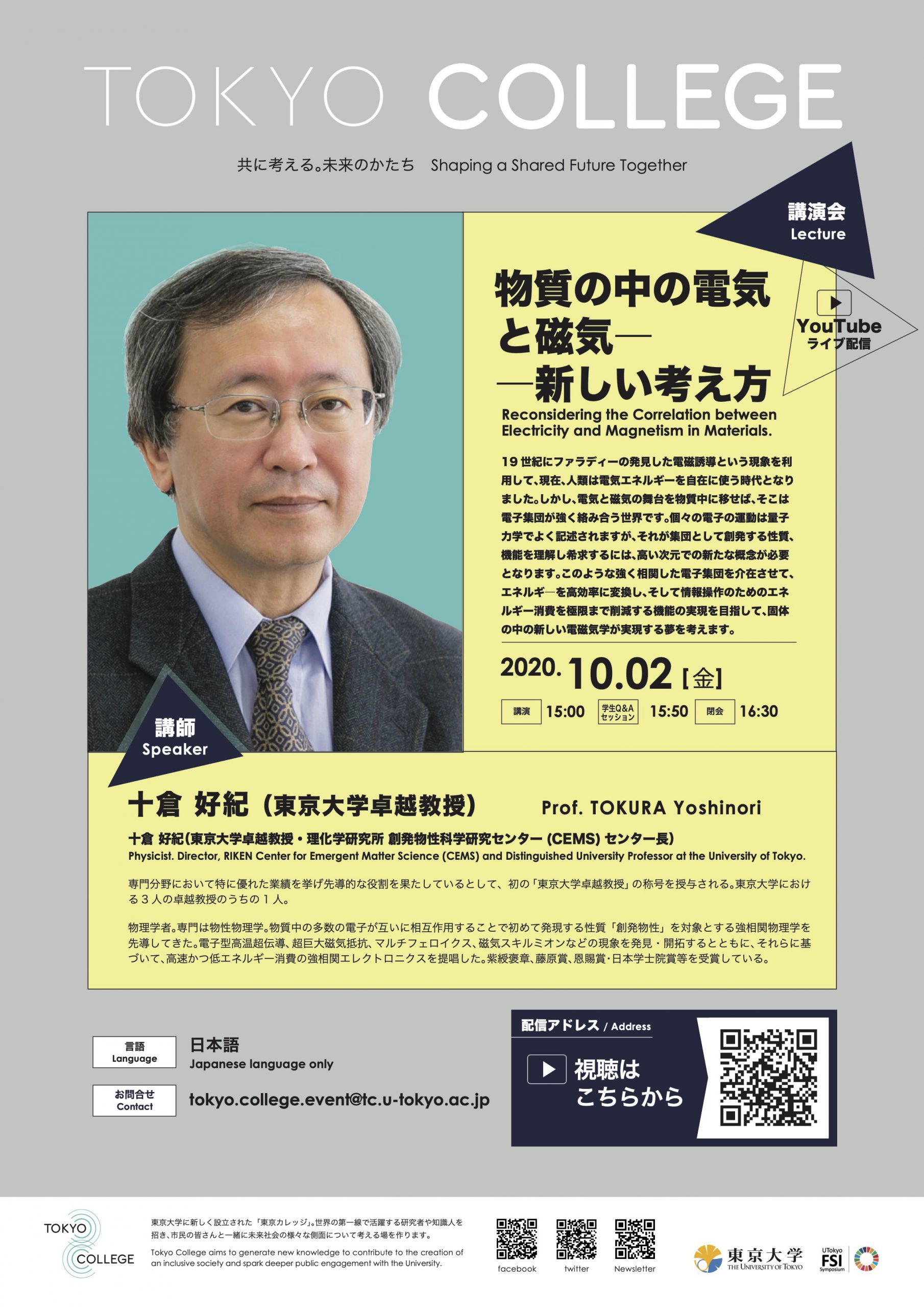Online Event “Reconsidering the Correlation between Electricity and Magnetism in Materials” by Prof. TOKURA Yoshinori
| Date(s) | Friday, 2 October 2020, 3:00-4:30 pm |
|---|---|
| Venue |
Tokyo College YouTube Channel(https://youtu.be/neyt61kyu5k) |
| Language | Japanese language only |
| Abstract |
In solid materials, a vast number of electrons are strongly interacting with each other. While motion of one electron can be precisely described by quantum mechanics, it needs the higher-hierarchy concept and methodology to understand and explore new properties and functions emerging from these correlated electrons. With use of correlated electrons and their forming topology, it becomes capable to control mutually the electricity and magnetism in solids. We dream the emergent electromagnetism in a solid which enables us to transform the energy form with high efficiency and mitigate ultimately the energy cost for information technology. |
| Program |
3:00-3:50pm Lecture by Prof. TOKURA Yoshinori 3:50 -4:30pm Q&A Session with UTokyo Students(not included in the video clip) |
| Speaker Profile |
Professor TOKURA Yoshinori Physicist. Director, RIKEN Center for Emergent Matter Science (CEMS) and Distinguished University Professor at the University of Tokyo. He is a specialist in Materials Physics and a leading scholar in physics of strongly correlated electron systems. He is known for his work in high-temperature superconductors, colossal magnetoresistance systems, multiferroics, topological insulators, and magnetic skyrmion materials. He is the recipient of Medal with Purple Ribbon, The Imperial Prize of Japan Academy, etc. He is one of the three scholars who are awarded as the Distinguished University Professor by the University of Tokyo for academic excellence and leadership. |
| Organized by | Tokyo College, The University of Tokyo |
| Contact | tokyo.college.event@tc.u-tokyo.ac.jp |















